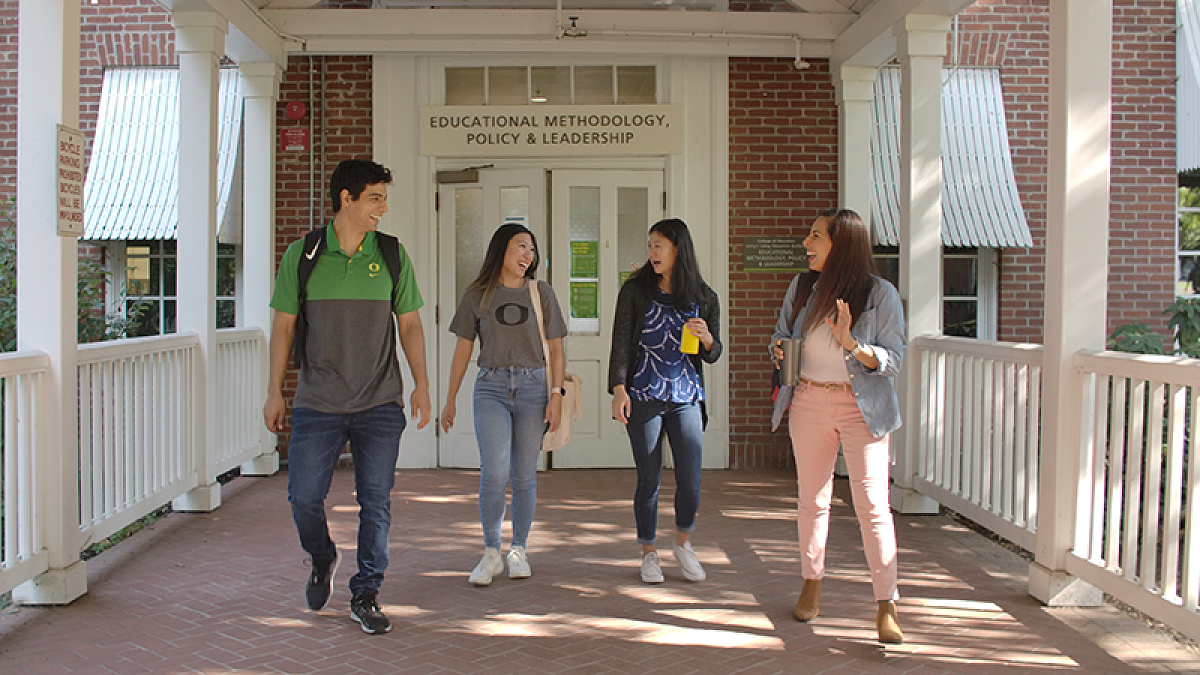A new University of Oregon master’s program in education policy and leadership will teach students how to increase equity in education from a systemic level.
The one-year program, led by College of Education professors Ilana Umansky and David Liebowitz, combines research methods, educational theory, policy studies and leadership studies. Applications are due at the end of January and classes begin in June at the Eugene campus.
Building on a previous education leadership master’s program, the Education Policy and Leadership (EPoL) master’s program is unique for its focus on education policy — it is the only program of its kind in the state and one of only a few in the region.
“The UO will be at the forefront of informing those conversations,” Umansky said. “We’re building a cadre of graduates who are moving the education field forward through a leadership and policy perspective.”
That perspective means that students will examine the systems that shape day to day education, includes state and school district policy.
Students decide whether they focus their studies on education policy, education leadership or the intersection of both. Half of the classes in their degree are electives and can be from any department of the university. Students curate their education to match their experience and interests.
“There are countless critically important issues in education today,” Umansky said. “And we want our students to be prepared to work and make change in the area they are most passionate about. This might be issues like supporting effective teacher professional preparation, promoting the expansion of bilingual education or equalizing school finance and resources.”
No matter their focus, students receive extensive training in different kinds of analysis. The Education Policy and Leadership program uses a model of small cohorts, of 30 students at most, to create community and encourage discussion.
According to Liebowitz, the cohort model is one of the most important strengths of the program. Students take a series of core classes together, all taught by tenure-track faculty. This makes it easy for students to connect with faculty and network with peers.
“One of the things we hope emerges from this program is that our graduates have this network of people who have gone through the same learning experiences and then continue to serve as valuable colleagues,” Liebowitz said during an information session.
Although the Education Policy and Leadership program can award a degree in one year, or four terms, students can also opt to study part-time and extend the program over two years.
The program prepares students for careers as policy or data analysts, leaders in non-profit or advocacy organizations, principals in K-12 schools, education journalists and more.
“We see our graduates moving into roles where they are able to shape the macro level of what education looks like, feels like and is across the state and country,” Umansky said.
To make the program more accessible, application fee waivers are available. Students can contact Shannan Garner for more information. When the program begins, faculty members can help students find scholarships and jobs on campus.
To learn more about the program, visit the Education Policy and Leadership website and apply.
—By Madeline Ryan, College of Education


